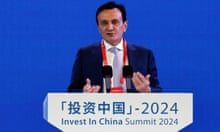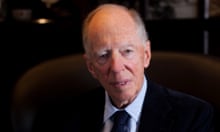Fund manager abrdn has said it plans to keep paying bonuses despite slashing 500 jobs and outsourcing more work as part of a £150m cost-cutting drive designed to boost profits.
The investment company is cutting jobs at head office and in its back office support teams but said that frontline staff who deal with clients would not be at risk.
The fund manager aims to strip out layers of middle management to simplify its complex internal structure.
However, chief executive Stephen Bird said that the group would continue paying bonuses to staff this year, saying it was important to recognise “performing colleagues”. Meanwhile, it plans to outsource more jobs carried out by staff internally.
Bird scrapped the Standard Life Aberdeen brand for its new name, abrdn, two years ago in a move which was described as “ill-thought out”.
The company said the bulk of overall savings will come from cutting a number of “non-staff costs”, which could include off-loading some of its properties, including office space and renegotiating contracts with suppliers. The cost-cutting programme is expected to take until the end of 2025.
Details of the latest bonus pot will be revealed on 27 February when abrdn releases its annual results. The company paid out £85m in bonuses for 2022, though that was down from £126m a year earlier. The CEO’s bonus was slashed by 62.4% due to not hitting profit and flows targets.
Affected abrdn staff, who are not unionised, are expected to be axed by the end of 2024.
The overhaul follows a “root and branch review” of the Edinburgh-based company, which said that its cost-cutting programme would help shift resources and restore its investment business to “an acceptable level of profitability” over the next two years.
The British asset manager suffered £12.4bn of net outflows in the second half of 2023, which the group partly blamed on high inflation and geopolitical uncertainty that had pushed clients to take safer bets.
after newsletter promotion
“Market conditions have remained challenging for our mix of business, and this is reflected in our year-end AUMA [assets under management and administration], flow numbers, and margins,” Bird said in a statement. “The board and I are committed to taking these significant cost actions now to restore our core investments business to a more acceptable level of profitability.”
The share price initially dropped sharply, before recovering to rise by nearly 4% by midday today.










